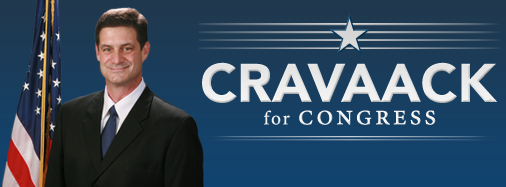A bill authored by U.S. Rep. Jim Oberstar goes too far in giving federal government jurisdiction over open waters, say disgruntled landowners.
By Brad Swenson
Bemidji Pioneer Press
Oberstar, DFL-8th District and chairman of the House Transportation and Infrastructure Committee, last April authored amendments to the 1972 Clean Water Act. The bill, America’s Commitment to Clean Water Act, attempts to correct two U.S. Supreme Court cases over jurisdiction over waters.
The original bill gave federal jurisdiction over all “navigable” waters, while the Oberstar bill removes that word and defines federal jurisdiction “to all waters that are currently used, were used in the past, may be susceptible to use in interstate or foreign commerce, including all waters that are subject to the ebb and flow of the tide,” says Don Parmeter, who is leading an effort to draft alternative legislation.
“This affects northern Minnesota and Minnesota in general, probably more than any other state in the country,” Parmeter said Thursday night to about 35 people who showed up to a forum on the bill at Hungry Bear Conference Center.
“It’s a radical bill, we’ve been fighting it since 2007,” said Parmeter of the National Water and Conservation Alliance, of an earlier version of the Oberstar bill.
“What this bill does, simply, is remove the term navigable from the federal water pollution control act of 1972 and replaces it with waters of the United States,” Parmeter said. “All interstate and international waters, including interstate and international wetlands, and all other waters, including intrastate which is all waters within the boundaries of the state” are included.
“That’s every wet spot,” he said. Parmeter said covered waters include lakes, rivers, streams (including intermittent streams), mudflats, sandflats, sloughs, prairie potholes, wet meadows, playa lakes and natural ponds.
“This is a very expansive federal authority bill,” he said. “This is not only a controlled waters bill but also a controlled land bill — everything within a watershed.”
The alternative, Parmeter said, is to turn over control to local jurisdictions.
He cited the 1980 effort of the upper Mississippi River counties to form a joint powers board, the Mississippi Headwaters Board, to stave off efforts to include the upper 400 miles of the river as part of the federal Wild and Scenic River Program.
Parmeter called for an alternative bill to do the same for the Rainy Lake/Lake of the Woods watershed, which includes much of north-central Minnesota to the Canadian border, in opposition to Oberstar’s bill. It could serve as a national model.
“Rather than transfer more power to Washington, D.C., you can do it yourself,” he said. “You’ve got a precedent with the Mississippi Headwaters Board.”
A group of eight counties in California did the same thing to gain control of two national forests, Parmeter said, an effort that took about five years to get a bill passed.
“The alternative is to do nothing or to allow Oberstar’s bill to pass into law, in which case we really become slaves of the federal government,” Parmeter said. His worse fear is having the key provisions of Oberstar’s bill attached to some other bill during the lame duck session after the election.
Parmeter also led property rights efforts in the 1990s which saw a modified Wetlands Conservation Act passed by the Minnesota Legislature that recognizes the large amount of presettlement wetlands in northern Minnesota.
“This trumps everything,” he said of Oberstar’s bill.
The audience included Chip Cravaack of North Branch, the Republican candidate for the 8th District, who said he’d requested Oberstar hold town meetings on the bill, but he refuses.
“This flies directly in the face of the 10th Amendment on state’s rights,” said Cravaack. “If we allow this to go through, what’s next? What other bill are they going to impose upon us that takes away our property rights and our personal freedoms?”
Cravaack said the bill would put 98 percent of Koochiching County under federal control because Koochiching County is 98 percent wetlands.
“If you’re a farmer or a rancher, this bill opens up a litigation toolbox for every environmental lawyer, every environmental group who will challenge you with everything they’ve got,” he said.
“If you read the bill, it says nothing about clean water,” Cravaack said. “It has everything to do with about jurisdiction and who’s going to own your property.”
“Getting a new 8th District congressman will defeat the Oberstar bill,” Parmeter said.
Parmeter, calling himself a reformed environmentalist of the 1970s, said today’s environmental movement is worth billions of dollars with groups such as the Sierra Club having intense lobbying efforts in Congress.
He called for the formation of county chapters to help frame new legislation in opposition to Oberstar’s bill.
“Some of us have various opinions about a lot of things in the U.S.,” said Bemidji snowmobile enthusiast Dick Lueben. “But I hope we can work together with everybody else — the farmers, the snowmobilers — everybody can realize this damage that Oberstar and his greedy friends want to do is endangering all of us in so many ways that we’d better stand together.”
America’s Commitment to Clean Water Act will reverse two decisions the Supreme Court made in 2001 and 2006 that have thrown the nation’s clean water programs into turmoil, Oberstar said in April in introducing his bill.
The rulings cut back on the authority of the Clean Water Act to regulate lakes, rivers, streams and wetlands across the U.S and created confusion and uncertainty for communities, developers, and agricultural interests. They also placed at risk the nation’s ability to restore, protect, and maintain water quality and the water-related environment.
“We have 10,000 lakes in Minnesota; 40 percent of all the lakes and streams covered by the Clean Water Act remain in danger or polluted,” said Oberstar. “I don’t want 4,000 lakes in Minnesota to be exposed to the danger of pollution.”
Oberstar said there was never any doubt that the 1972 law was to have broad authority.
Oberstar first proposed a bill in 2007 but died under threat of presidential veto.
A number of other organizations also expressed concerns that the legislation would extend the scope of the Clean Water Act, instead of simply restoring its original authority. The current bill includes modifications that will address those concerns, Oberstar said.
“Simply put, if it was not regulated before 2001, it will not be regulated with the enactment of this legislation,” said Oberstar.









Leave Your Response